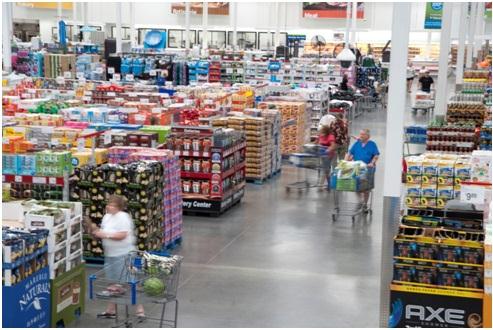- Business Concepts ›
- Marketing and Strategy ›
- Warehouse Retailing
Warehouse Retailing
Definition & Meaning
This article covers meaning & overview of Warehouse Retailing from marketing perspective.
What is meant by Warehouse Retailing?
Warehouse retailing is a concept of selling large quantities of goods at discounts deeper than those provided in conventional supermarkets or wholesalers. They offer very low prices and little or no customer service at all. The value provided to customers (that include ultimate consumers and small retail outlets) is in the form of discounts and it is overall a rather no-frills experience. The industry rose in significance with dwindling disposable income but has matured over the years owing to unavailability of space, growing real estate prices etc.
Warehouse clubs can be considered as large stores that primarily retail grocery products but may also offer the following merchandise items: furniture, apparel, appliances, personal care products, health and wellness and digital & print media.
Such stores operate from huge, low-overhead warehouse facilities generally located in the outskirts of cities. They do not offer home delivery and don’t accept credit cards for purchases. What is unique about the warehouse clubs is that they offer customers a wide selection of goods (although often in bulk), at highly discounted prices but in exchange, each customer must pay an annual membership fee. Example: Sam’s Clubs, Max Clubs in the US. Star Bazaar, Big Bazaar and Metro Cash and Carry are some of the warehouse retailers in India.
A Sam’s Club outlet looks like this:

Hence, this concludes the definition of Warehouse Retailing along with its overview.
This article has been researched & authored by the Business Concepts Team which comprises of MBA students, management professionals, and industry experts. It has been reviewed & published by the MBA Skool Team. The content on MBA Skool has been created for educational & academic purpose only.
Browse the definition and meaning of more similar terms. The Management Dictionary covers over 1800 business concepts from 5 categories.
Continue Reading:
What is MBA Skool?About Us
MBA Skool is a Knowledge Resource for Management Students, Aspirants & Professionals.
Business Courses
Quizzes & Skills
Quizzes test your expertise in business and Skill tests evaluate your management traits
Related Content
All Business Sections
Write for Us